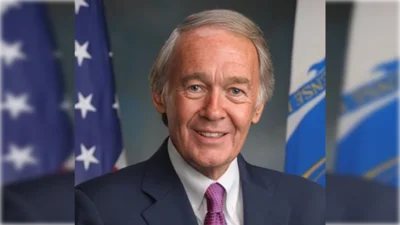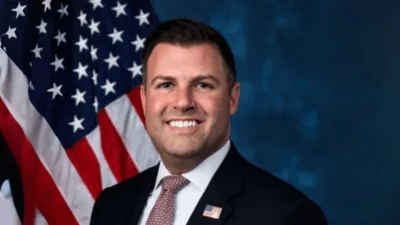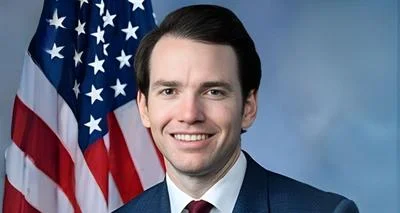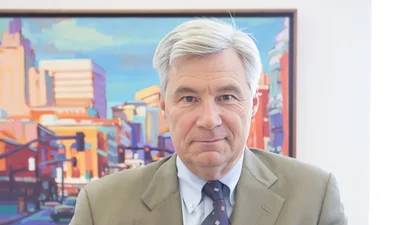Washington, D.C. -Today, the Select Subcommittee on the Coronavirus Crisis, chaired by Rep. James E. Clyburn, held a hearing to examine challenges faced by the nation’s state and local public health officials during the coronavirus pandemic, and the need to protect, rebuild, and strengthen the nation’s public health infrastructure for the long term.
Chairman Clyburn said in his opening statement:
“For decades, state and local public health departments have been chronically underfunded and understaffed. Throughout the pandemic, we have seen firsthand how our under-resourced public health system was ill-equipped for such a large-scale emergency-with limited disease monitoring and surveillance capabilities, testing and reporting deficiencies, and outdated technology hampering the response."
He continued:
“Since the pandemic began, public health officials have faced unprecedented levels of harassment, threats, and attacks from members of the public-particularly in response to their attempts to adopt proven mitigation measures such as masks and social distancing guidelines, after they were recklessly politicized by the past President and his anti-science allies. … It is abhorrent that public health officials and their families have received death threats, had their homes vandalized, and faced other attacks for following the science and taking steps to save American lives."
Today’s witnesses were: Dr. Jennifer Bacani McKenney, Health Officer of the Wilson County Health Department (Kansas); Dr. Mysheika Roberts, Health Commissioner of the Columbus Public Health (Ohio); Dr. Joseph Kanter, State Health Officer and Medical Director of the Louisiana Department of Health; and Dr. Beth Resnick, Assistant Dean for Practice and Training & Senior Scientist at the Bloomberg School of Public Health at Johns Hopkins University.
Witnesses shared the following testimony during the hearing:
The United States Has Failed to Adequately Invest in State & Local Public Departments for Decades, Contributing to a Declining Workforce that Was Stretched Thin Before the Pandemic
* Dr. Roberts testified that reductions in the public health workforce “left a hole in how we could adequately respond and gear up to this once-in-lifetime pandemic."
* Dr. Roberts also testified to the ongoing impact of the pandemic on her health department, stating: “After months of working really long hours on COVID-19 testing, tracing, and vaccinating to protect the health of our community, my staff is burnt out, overworked, and underpaid. Some are leaving the field entirely, unable to contribute anymore to the work they once loved. Simply put, their tank is empty."
* Dr. McKenney similarly described the toll the pandemic has taken on her workforce, explaining: “My colleagues and I have worked thousands of unpaid hours because we promised to protect our friends, families, and neighbors" during the pandemic. She noted that turnover has a particularly significant impact in small, rural communities, saying: “One lost employee is a huge hit on a health department the size of ours in a rural community."
* Dr. Kanter emphasized that investments in the public health workforce are direly needed, warning: “State and local health departments need help shoring up their workforces before they buckle under the weight of a now 19-month long pandemic."
Public Health Officials Are Under Attack for Using Science to Guide Their Decisions and Working to Keep Americans Safe
* Dr. Kanter described his experience in Louisiana: “I found, particularly during our recent Delta surge, increased anger and threats made to me personally, some very ugly and with obvious intent to track down my family’s personal identifying information."
* Dr. Roberts relayed incidents of harassment and intimidation that were directed towards other public health officials in Ohio: “Our previous director of the state department of health was subject to threats and anti-Semitic slurs at her home. Her designated replacement never assumed the job after her contact information become known and she was subject to harassment. In January of this year, the state Department of Health’s assistant medical director had shots fired at her home."
* Dr. McKenney described feeling “unsafe and nervous for my family" after a public meeting on her county’s mask mandate. She relayed an incident where her home was filmed and the footage was posted on social media.
* Dr. Resnick said that she has identified 1,500 incidents of attacks and harassment against workers and health departments across the country. She added: “From death threats to protests to intimidation, even shots fired at their homes, public health workers and their families continue to be the focus of attacks and harassment."
* Dr. Roberts testified that public health workers are leaving the workforce due to this harassment, stating: “Public health officials also have been physically threatened and politically scapegoated, causing them to leave when they are needed the most."
Some States Are Dangerously Undermining Public Health Authorities
* Dr. Resnick highlighted dangerous actions taken by certain state legislatures to permanently weaken public health authorities and warned that “such senselessness is exactly what is happening across the country."
* Speaking against laws enacted to undermine public health officials’ ability to keep Americans safe, Dr. Roberts explained: “Local health officials make decisions based on science to protect the public’s health, whether popular or not. Public health has been doing this work for nearly a century. It should be no different today."
* Dr. Resnick defended actions taken by public health authorities to protect public health in emergencies, underscoring that “public health emergency authority is an essential component of a well-functioning government." She explained: “without public health powers we would still have smallpox. We would still have polio."








